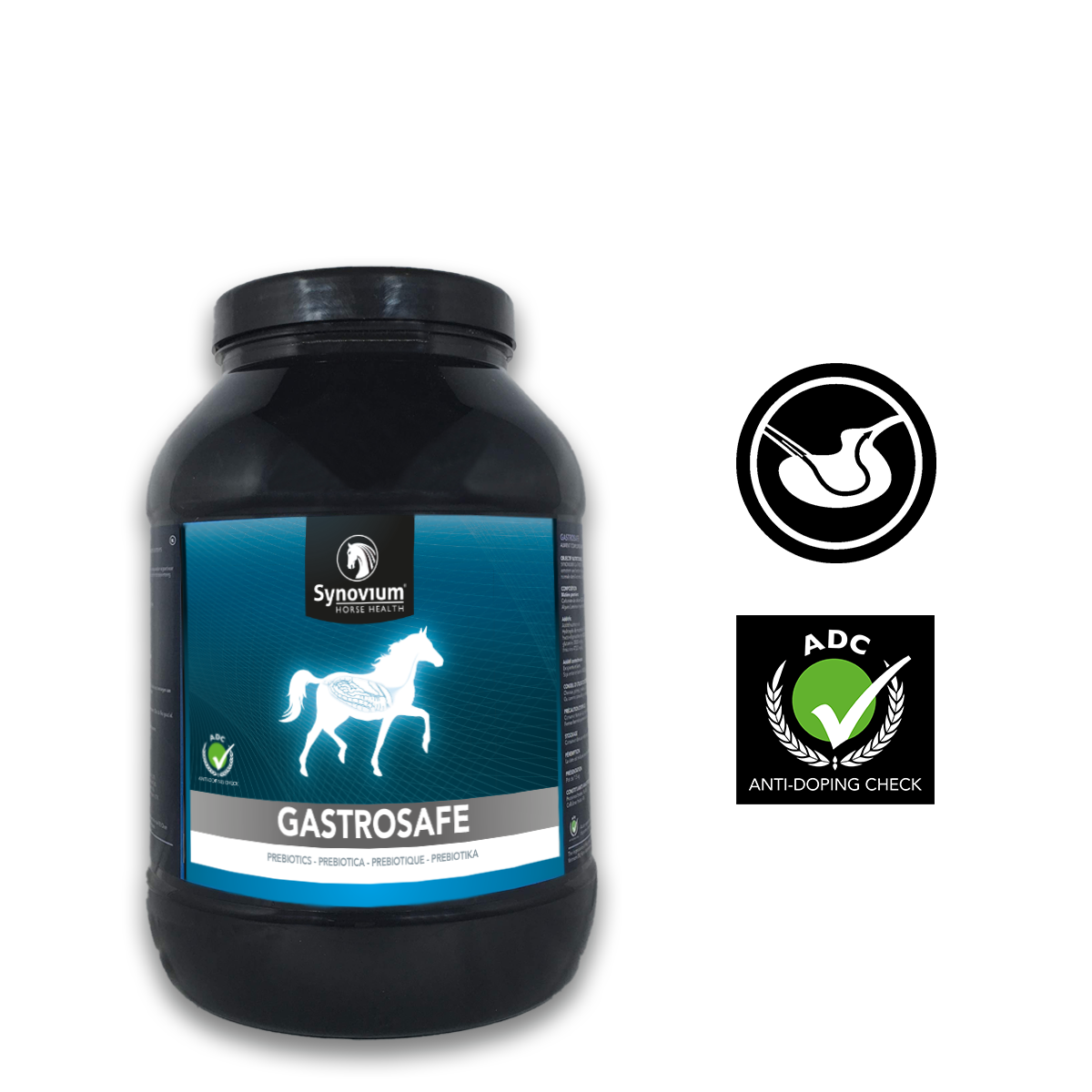Posted: 9th July 2020 | Back to news feed

A question may horse owners ask as horses suffering with ulcers and an upset gut is becoming more visible thanks to new veterinary technology and the understanding of the typical tell-tale signs. So, what should we be feeding; prebiotics, probiotics or both? Our vets come across this question regularly, so they decided it was important to undertake extensive trials and evaluate the scientific research behind some theories and conclude their own results.
Whilst there has been some research done using probiotics on horses, this has been largely in foals and it is neither substantial nor conclusive. Majority of the research with supplementing probiotics is based on the studies of probiotics when given to humans. Horses are mainly foragers and do not eat meat like humans, so we should not use this research for determine the benefits of probiotics for horses!
Probiotics, what are they?
Probiotics are live microorganisms contained in feed or a supplement. It is presumed that when probiotics are fed to horses, it creates new good bacteria needed for healthy digestion which supports against digestive upset. However, there is no conclusive proof that this is the case in horses, and some studies have shown that some types of probiotics can cause further upset. This is because for each horse the microbiotics are unique and individual, determined at only a few days old. With so many factors which could affect the numbers and types of good bacteria in any horse’s gut, from feed type to biochemistry, to fully know if probiotics help maintain a healthy gut in horses.
The horse’s gut, how does it work?
Horses are hindgut fermenters – which means that the large intestine is where fermentation of ingested fibre takes place. A horse’s forage mainly consists of fibre such as grass and hay/haylage, which is broken down by microorganisms to produce essential nutrients that are absorbed through the horse’s hindgut.
The bacterial and protozoal flora of the horse’s hindgut is geared only for fibre fermentation; therefore, it is venerable to receiving large amounts of undigested sugars causing gut upset.
The ideal balance between good microbes and harmful bacteria in the hindgut can be easily disturbed when:
• Starch/ sugars that are not properly digested from concentrated feeds finds it’s way into the hindgut
• horses go hours without forage to consistently graze on
• there is a sudden change in forage or feed without slow introduction (7-10 days minimum is recommended)
• a horse gets stressed or anxious
It is important to keep the balance of good and bad bacteria right for each individual horse.
How can Prebiotics support the horse’s gut?
Prebiotics are non-digestible food sources for the horse's existing good gut microbes. They are not live like Probiotics. Prebiotics assist the horses existing gut bacteria for optimal health by encouraging the growth and activity of existing microorganisms, so the good bacteria remain healthy to supress the bad bacteria. Scientific studies have shown the benefits of supplementing horses with Prebiotics.
Synovium® Gastrosafe
Gastrosafe has been developed by our leading vets after undertaking extensive research and trials to provide a supplement that effectively supports the horses front and hind gut health. Gastrosafe is a unique veterinary formula to support a balanced stomach environment and healthy digestive function. It assists in controlled stomach acid in horses, provide essential prebiotics, whilst supporting the natural anti-inflammatory processes in both the front and hind gut. It has been scientifically proven to support horses during or after veterinary treatment for ulcers when fed for at least 6 weeks at the recommended daily amount. Always seek veterinary advice if you suspect your horse has ulcers.

Gastrosafe contains (maintenance of an average 500kg horse)
• Calcium Carbonate 10,000 mg per daily amount - A natural buffer against stomach acid
• Laminaria hyperborean 5, 000 mg per daily amount - Seaweed, very palatable vitamins, minerals and trace elements to help protect the stomach wall
• Magnesium Hydroxide 5,000 mg per daily amount - helps to neutralise stomach acid and is often used to calm horses who easily get stressed or anxious.
• Fructooligosaccharides 5, 000 mg per daily amount - Prebiotics, a natural feed source for good gut microbes
• Glutamine Peptides 1,900 mg per daily amount - an essential amino acid to help maintain a healthy stomach lining and replenishes the natural L-glutamine which is often lost through stress
• Threonine 2,360 mg per daily amount - an important amino acid for optimal GI tract health by assisting mucin production to support a smooth gut function and nutrient absorption. Also guarding the gut from bad bacteria and toxins.
Further information can be view on our website www.synovium.co.uk
It is continually difficult to understand what is best to feed horses for a healthy gut and studies are still ongoing. Therefore, it is always recommended to speak to your vet for advice. There are many theories on Probiotics, but nothing proven, unlike with Prebiotics. Synovium Horse Health bases its supplements only on the latest proven scientific research and trials on horses.
Synovium Horse Health founder & FEI Dutch Veterinarian, Drs SHL Donker DVM. Manging Director Synovium UK, Miss VA Hipkins.
The Equestrian Index newsfeed is compiled from articles submitted by advertising members and expresses the opinions of those members. Watsons Directories Ltd shall not be held liable for any inaccuracies or mis-statements therein.
